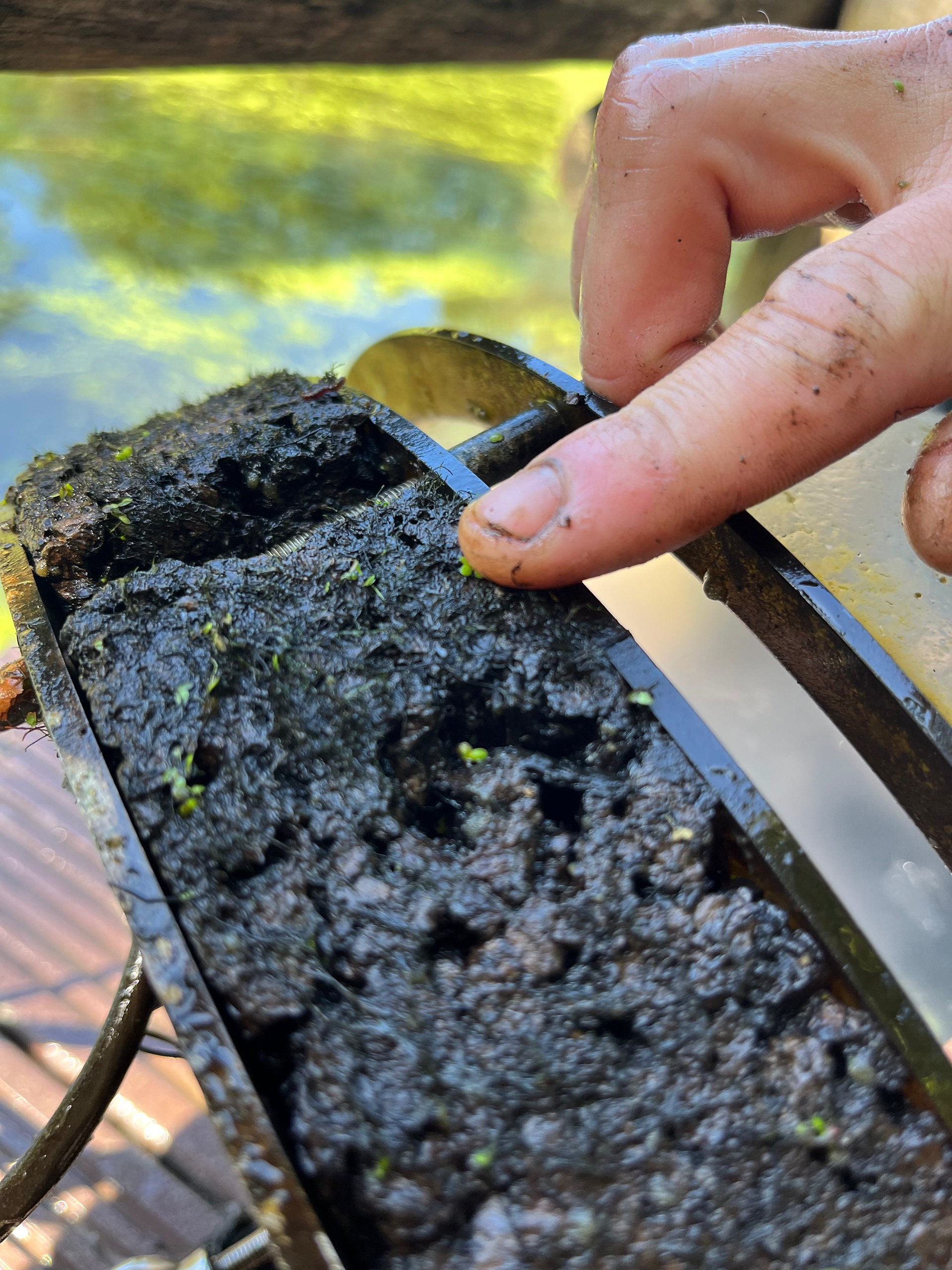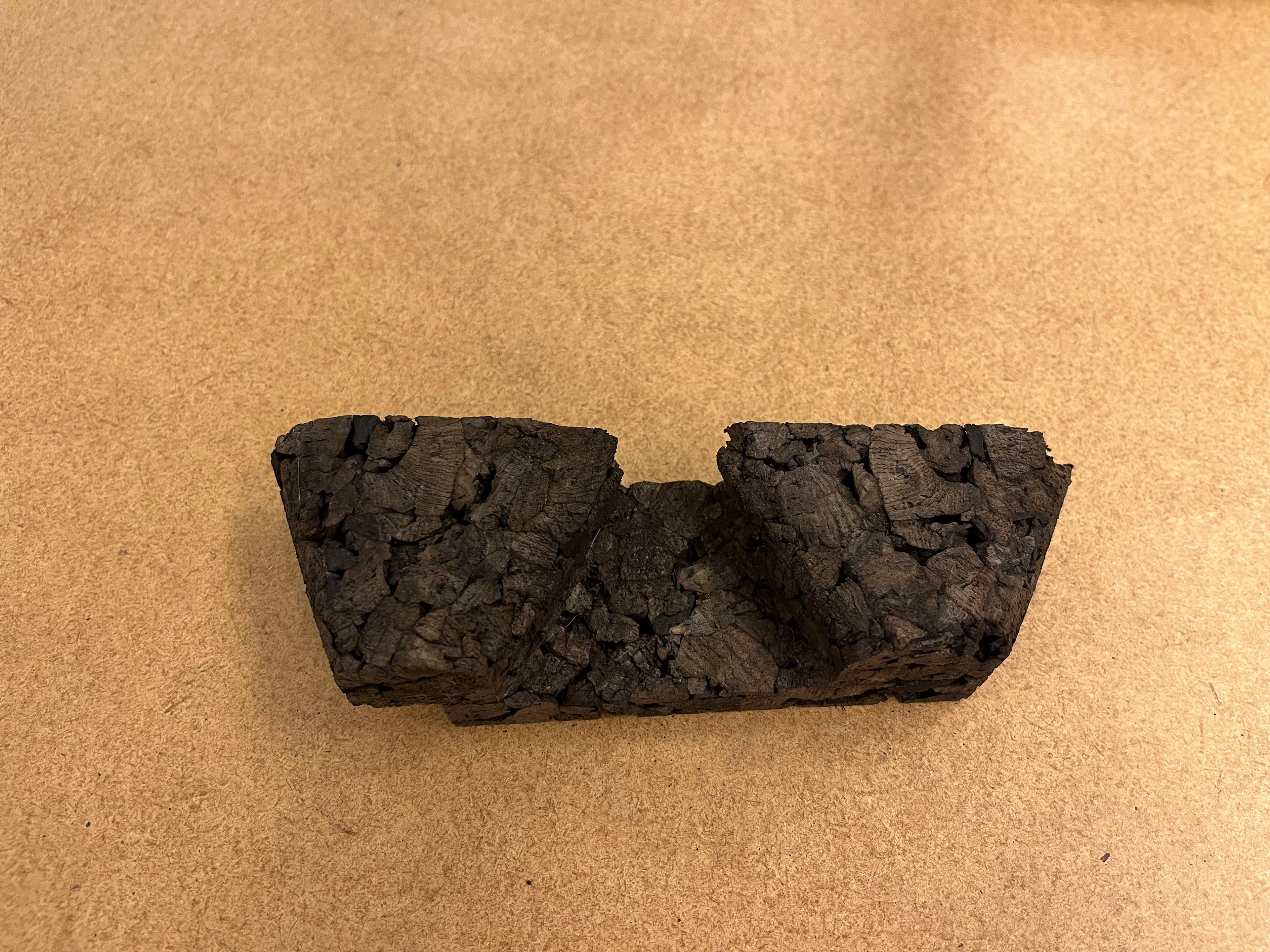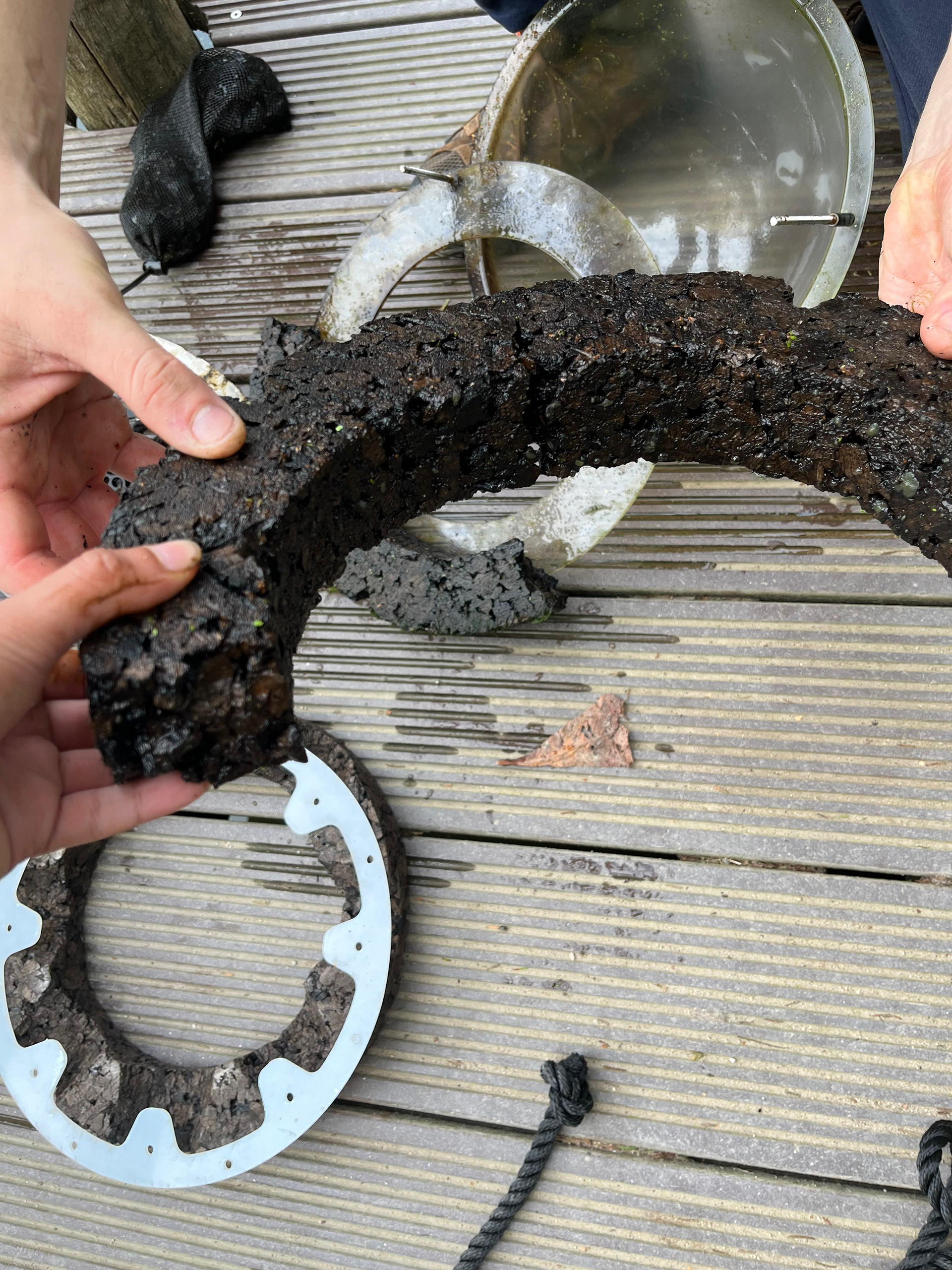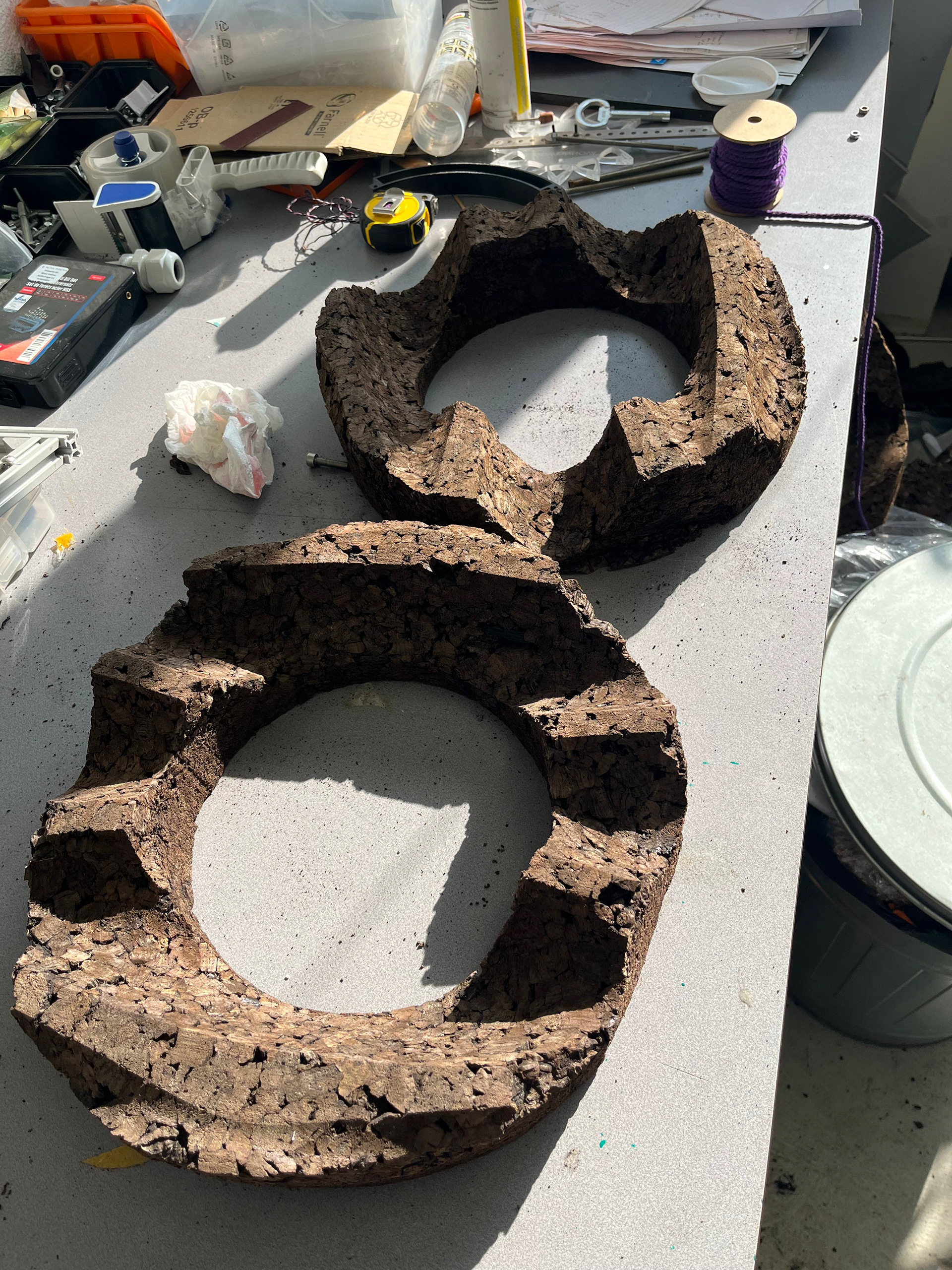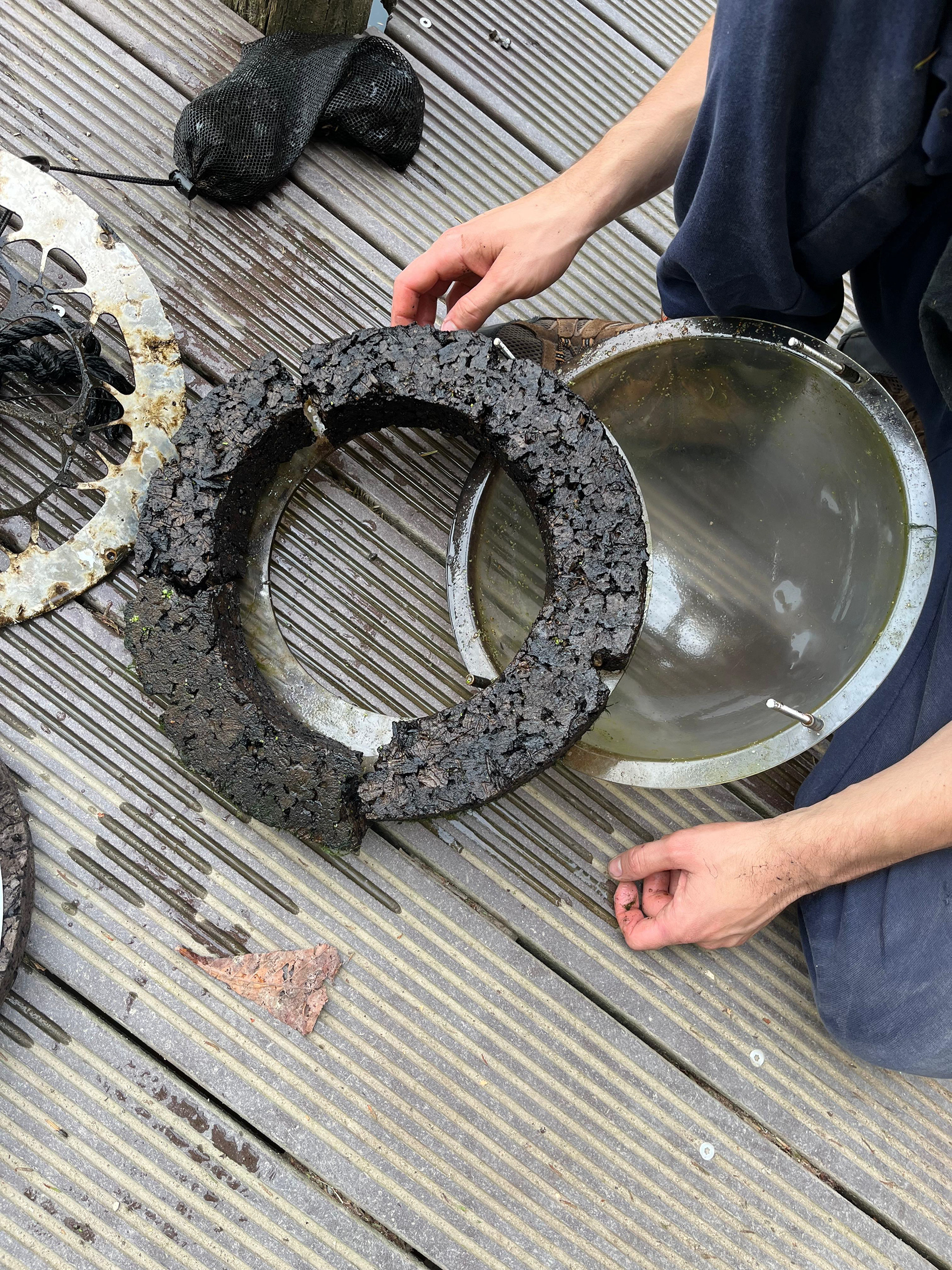Internship: Nova Innova
[research] [microbiology] [project management] [product design]
July 2023 - November 2023
POND prototypes displayed at Blijdorp zoo, Rotterdam
During the internship at Nova Innova, a biodesign startup in Rotterdam, I focused extensively on soil based microbial fuel cells (MFCs), working for the first time at the nexus of design, microbiology, and data analysis. This formed the backbone of my future projects at the department of Industrial Design. The internship was an immersive learning experience where I built and maintained MFCs under the guidance of Agoston Walter, a Nova Innova employee and former student at ID TU/e. I gained valuable insights into the complex role of electrogenic bacteria as active participants in the system.
Central to this work was the challenge of understanding and responding to bacterial needs. I developed care practices to optimize their activity- this included extensive data analysis of voltage generation patterns to identify which care practice is needed. Care practices included examining water level to ensure anaerobic conditions, changing the external resistance of the cells to ensure optimal "stress" on bacteria, monitoring environmental conditions, pH, and nutrient availability for the bacteria. Data collection and analysis - both quantitative and qualitative- became critical tools, enabling me to assess the performance of the fuel cells and understand the conditions driving—or hindering—their functionality.
Right: building MFCs
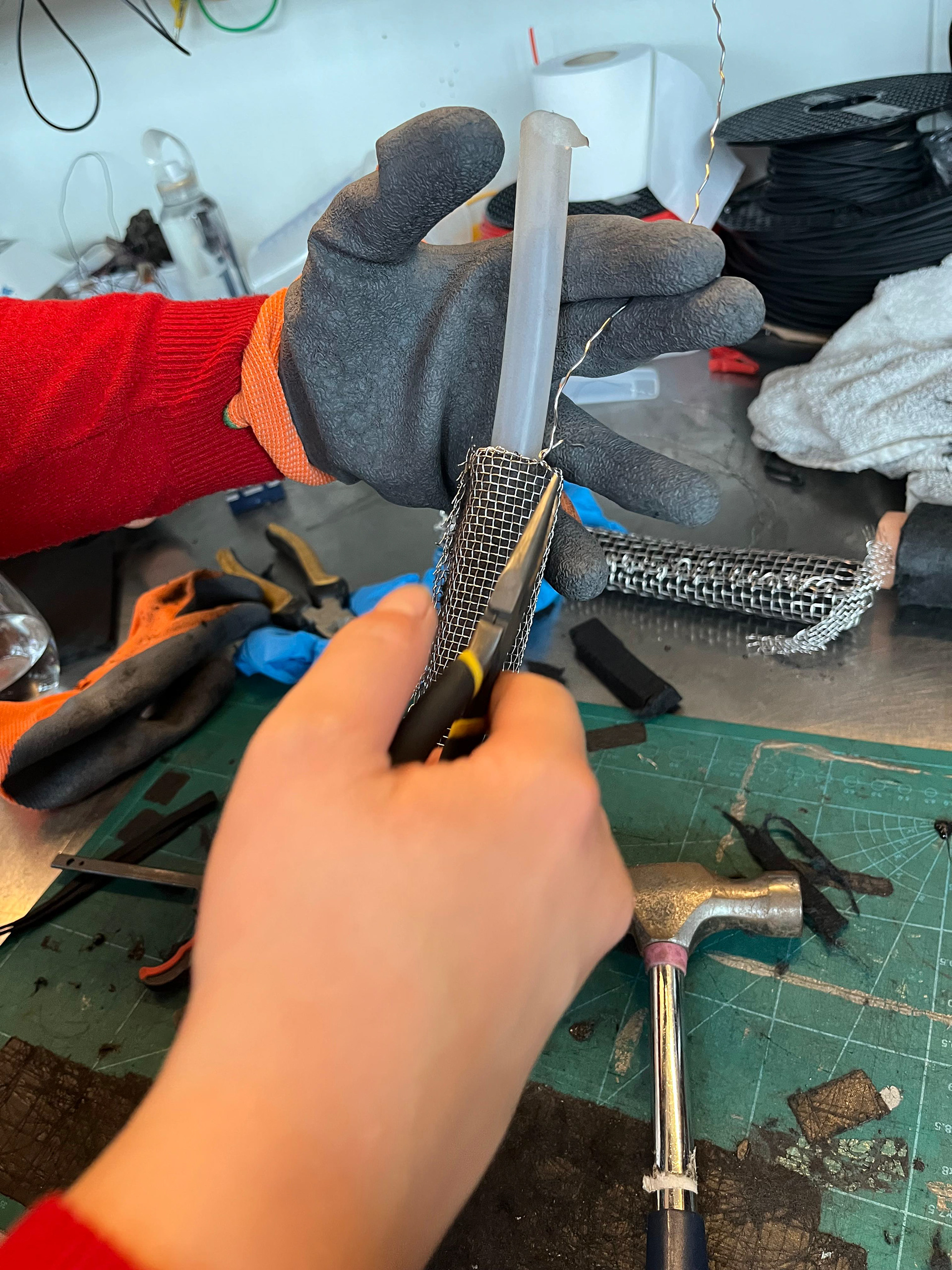
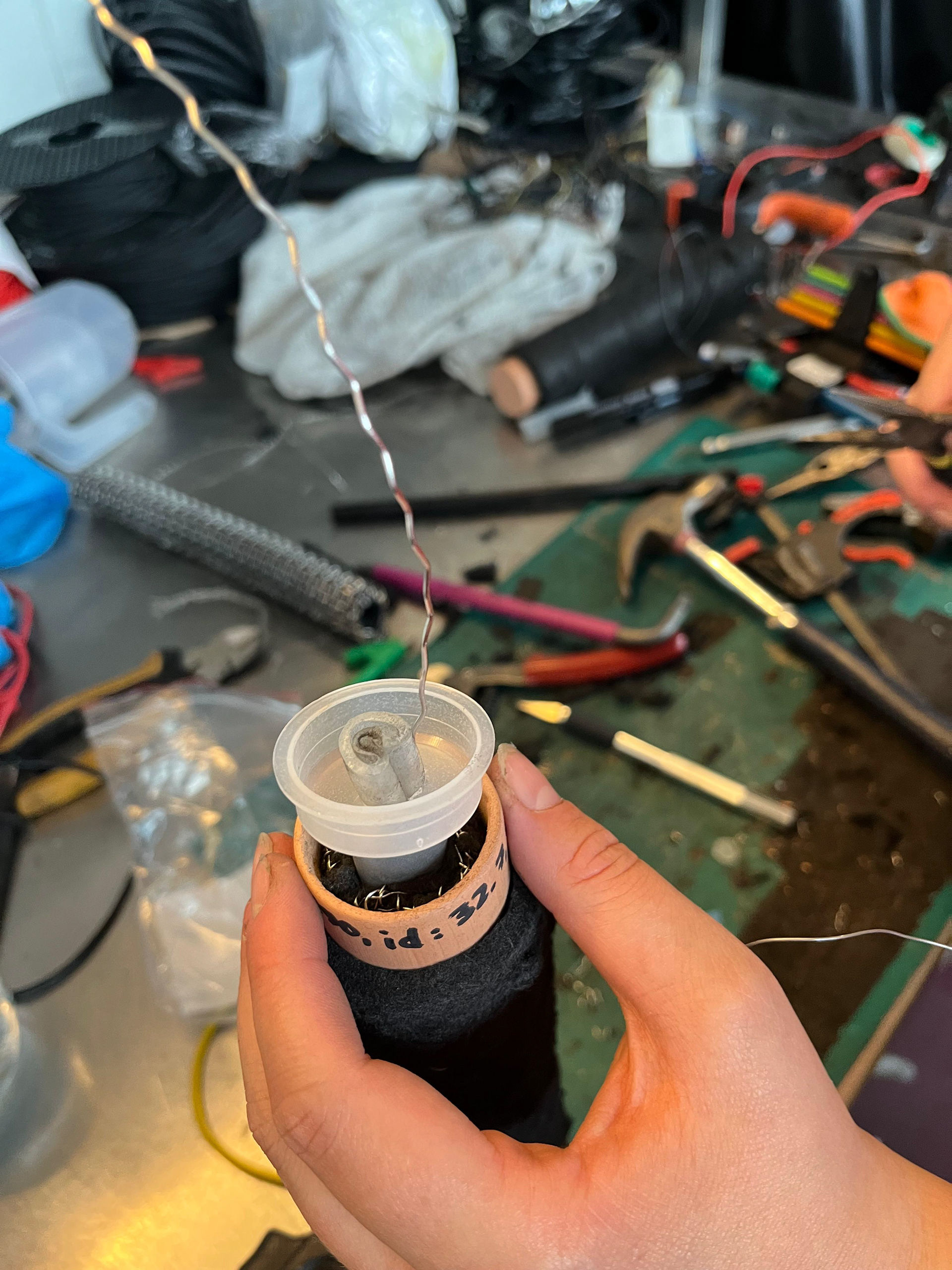
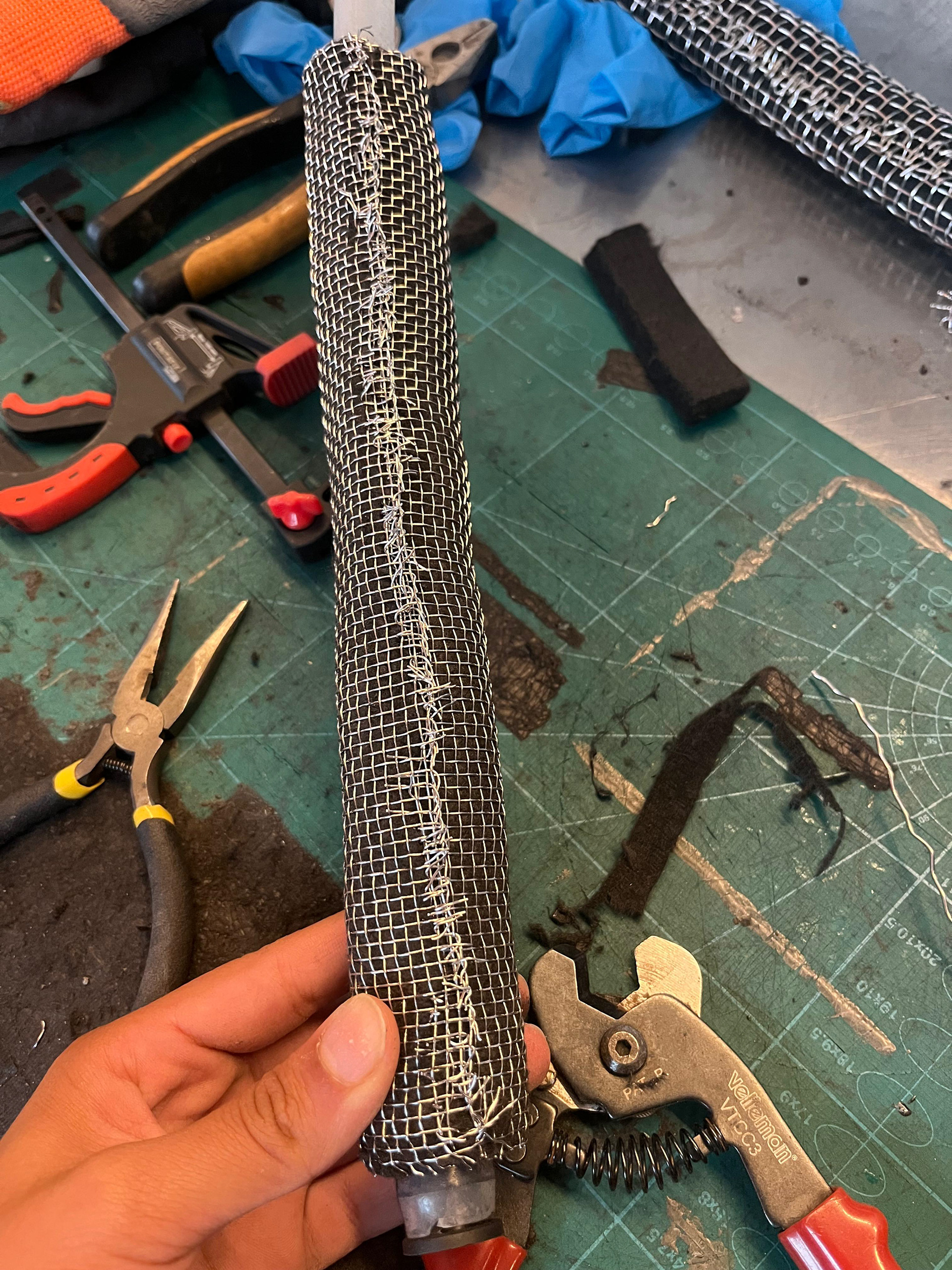
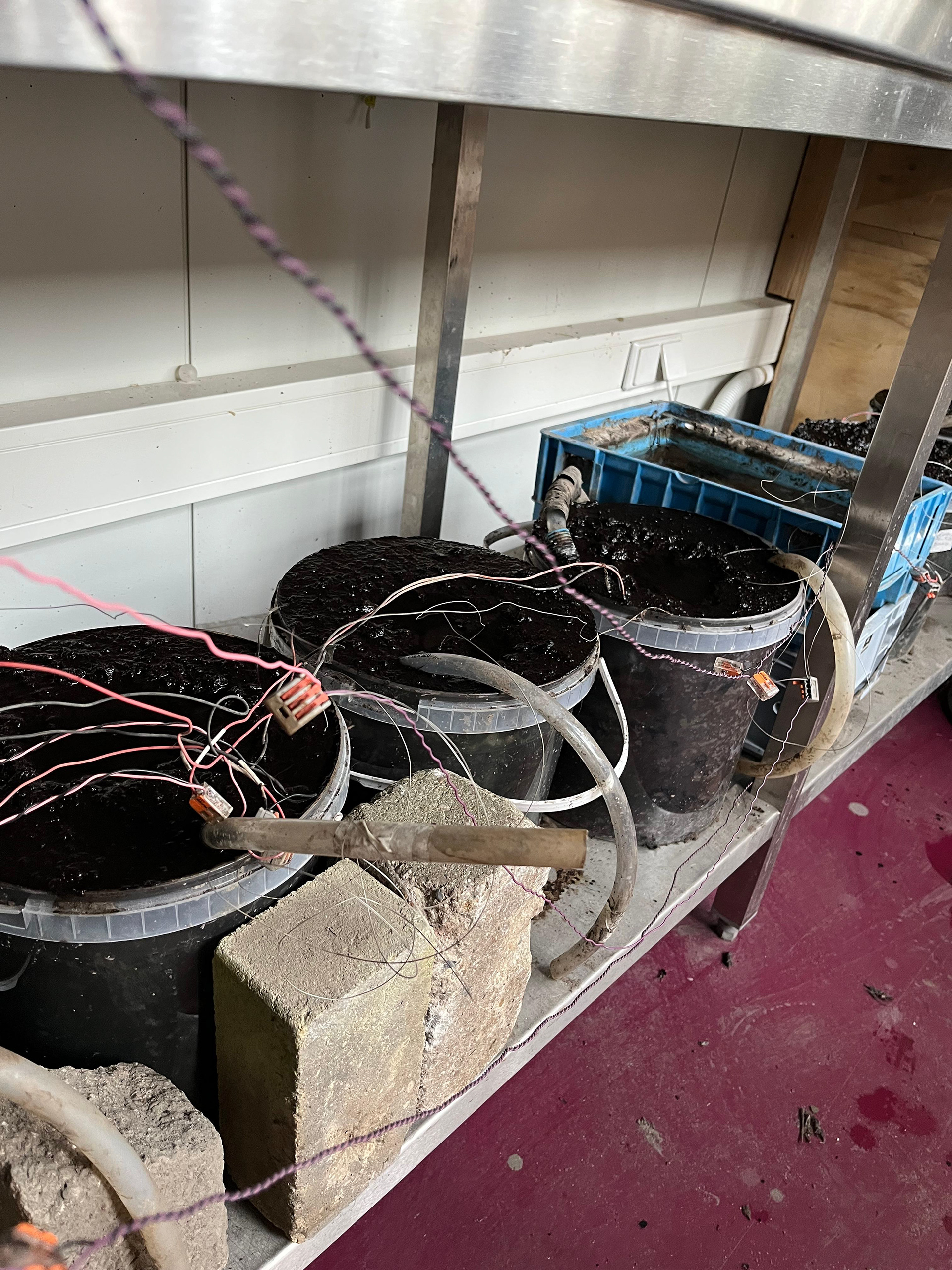
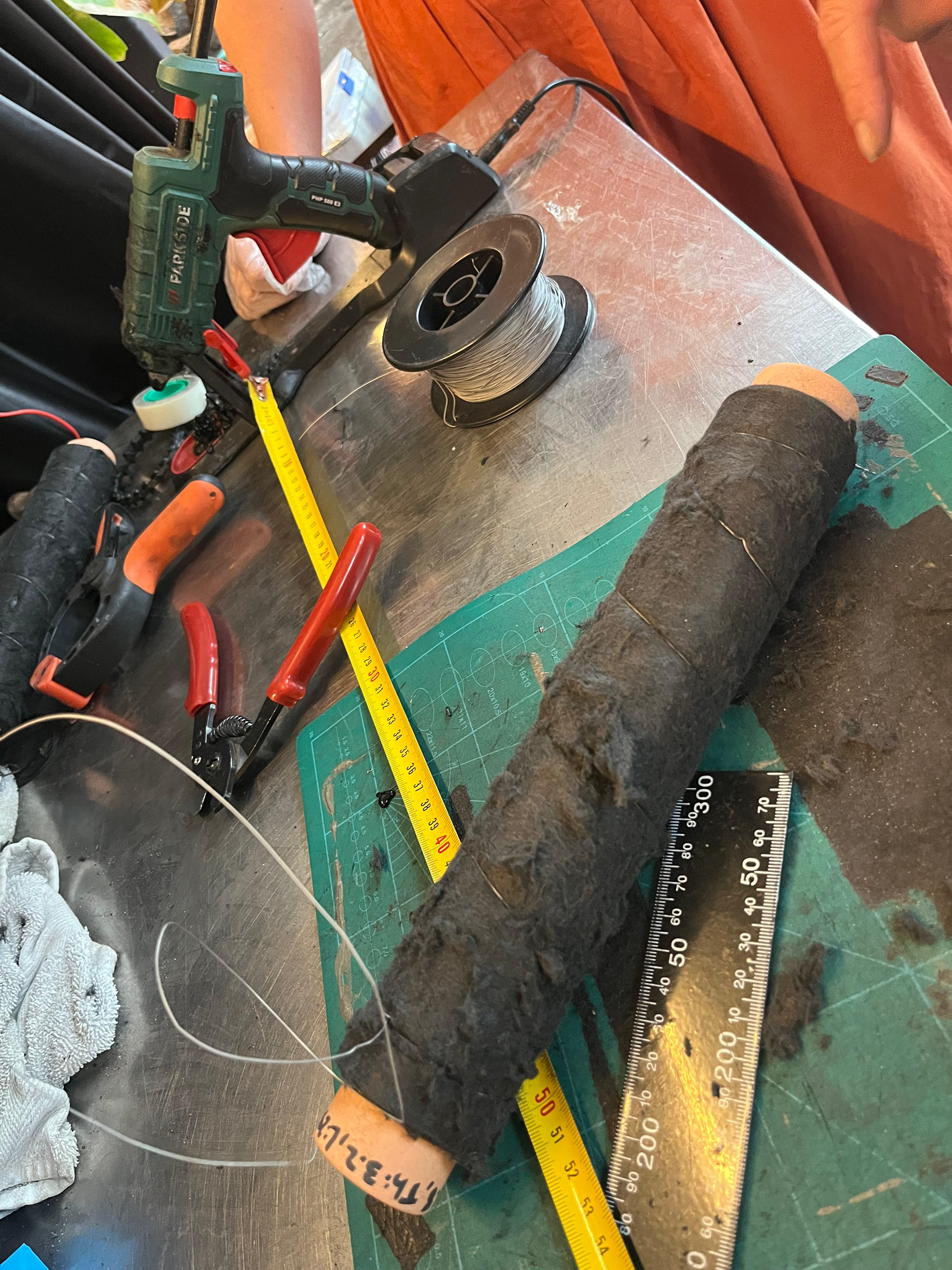
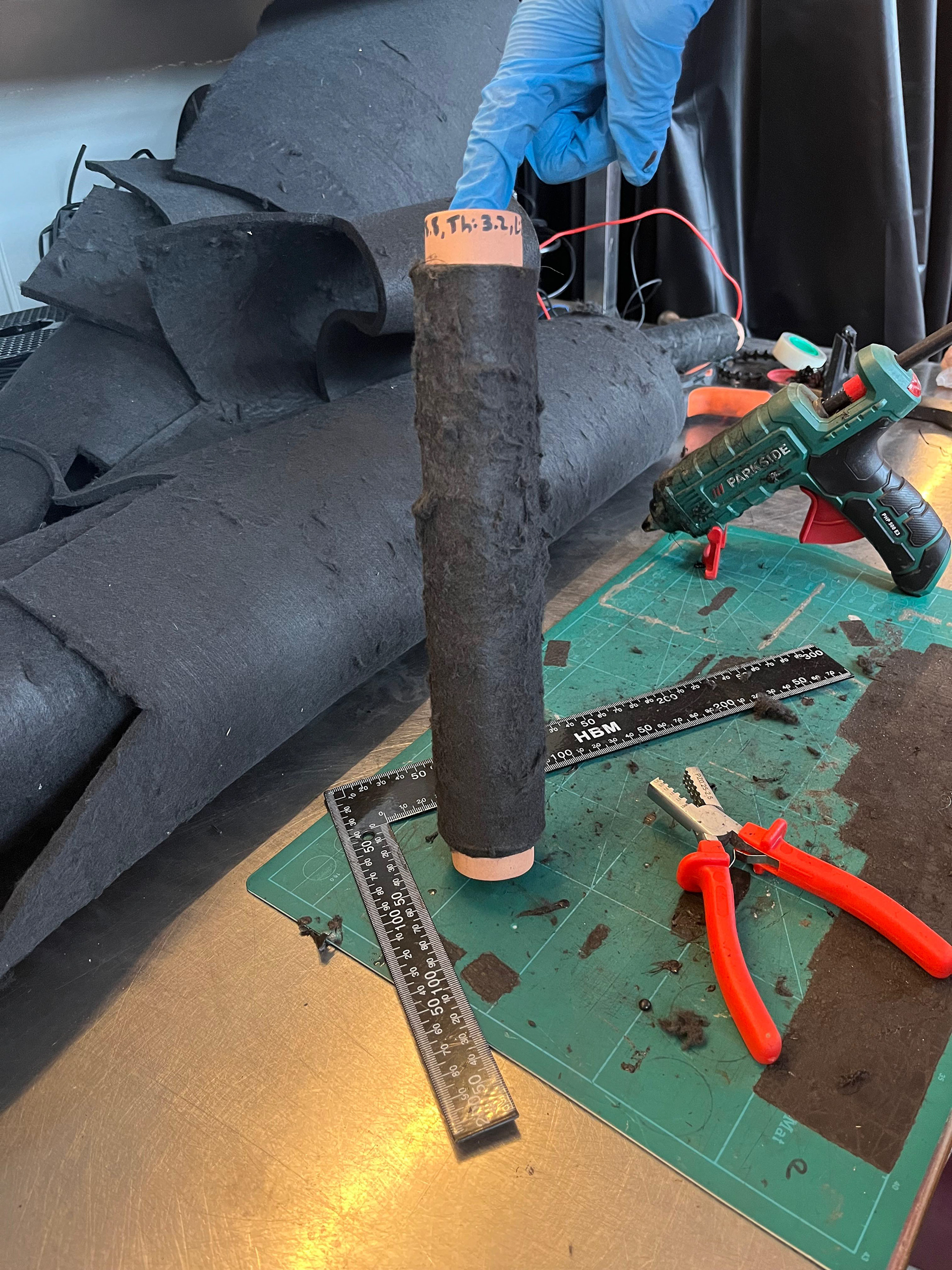
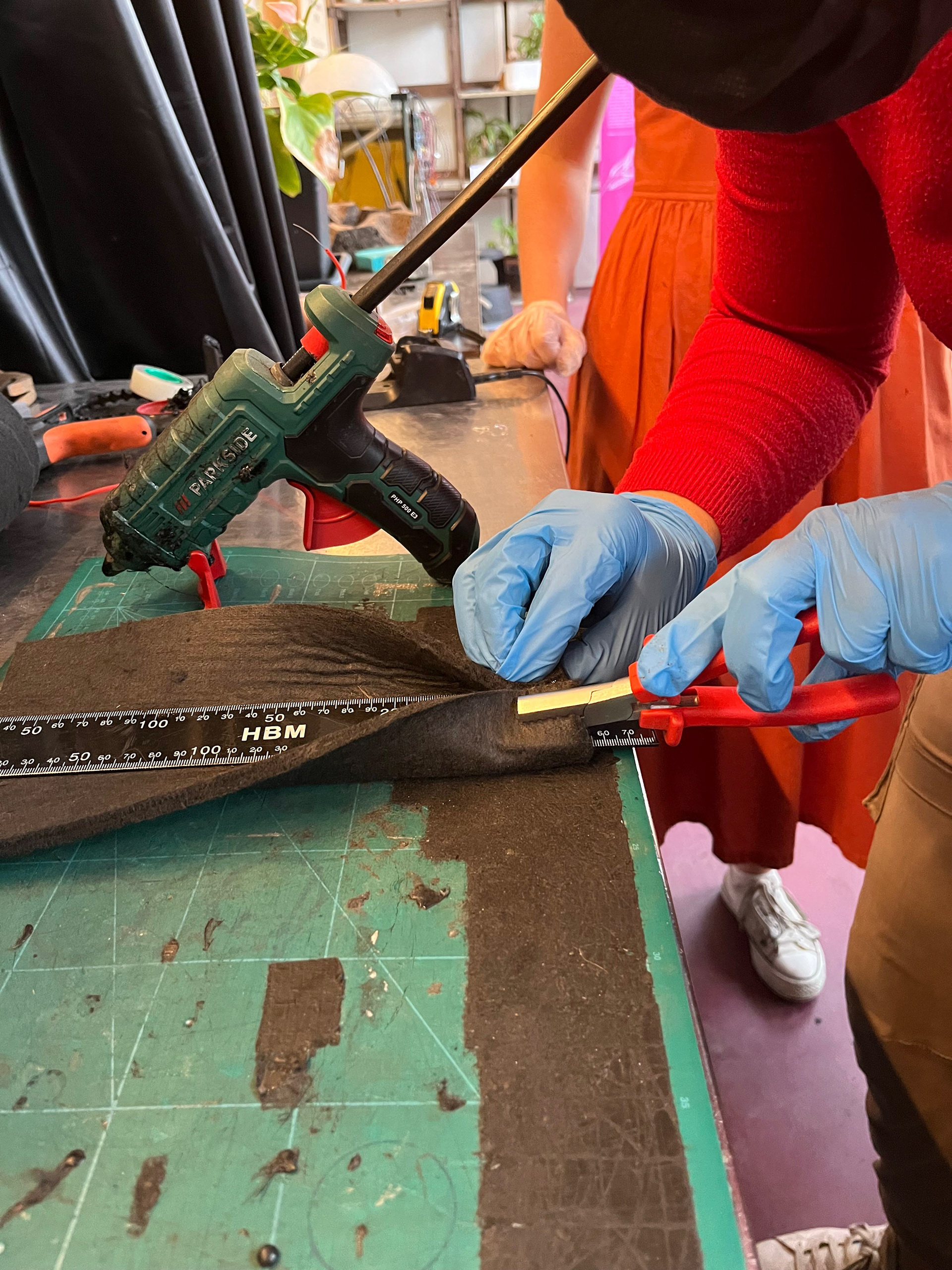
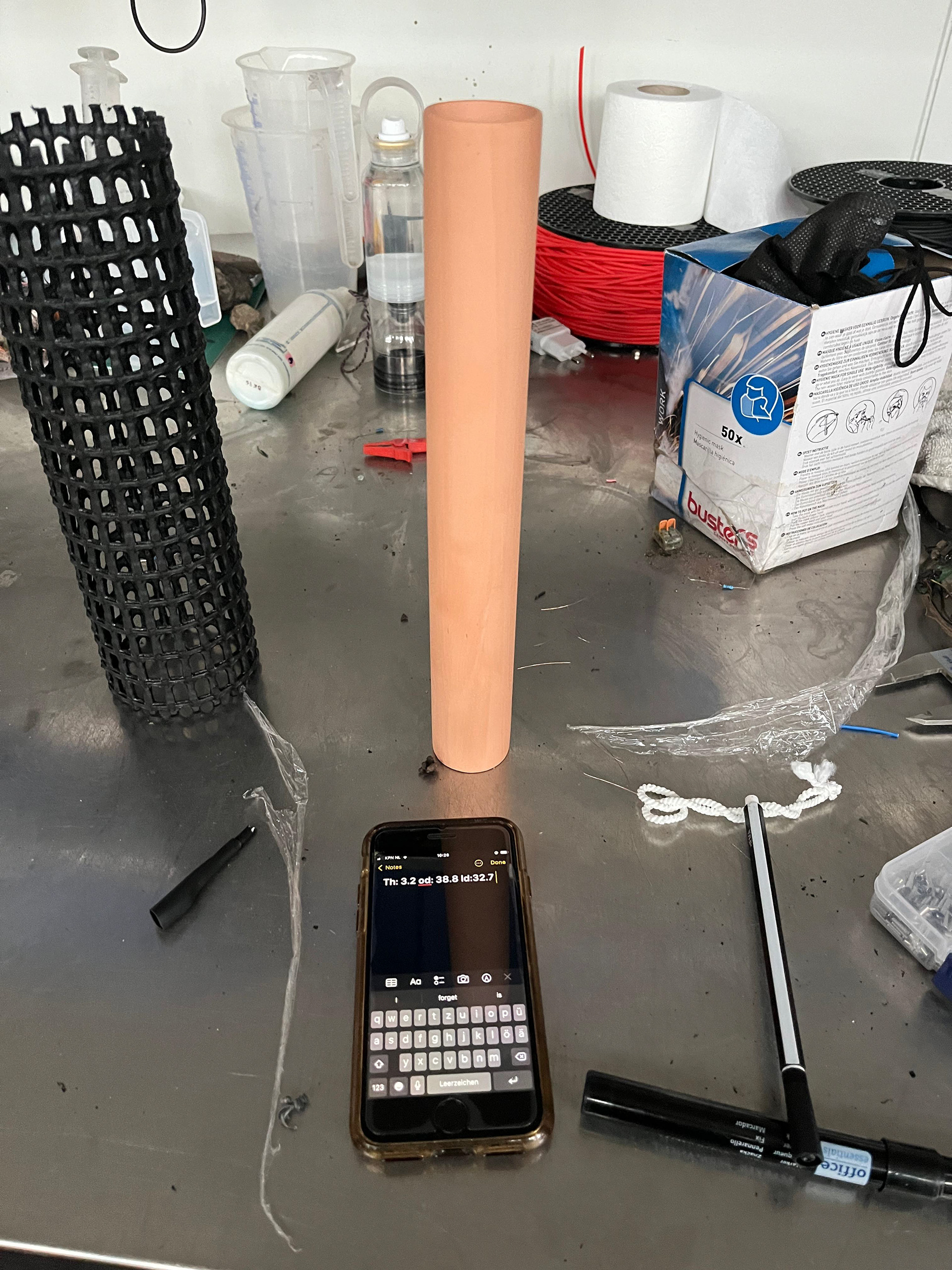
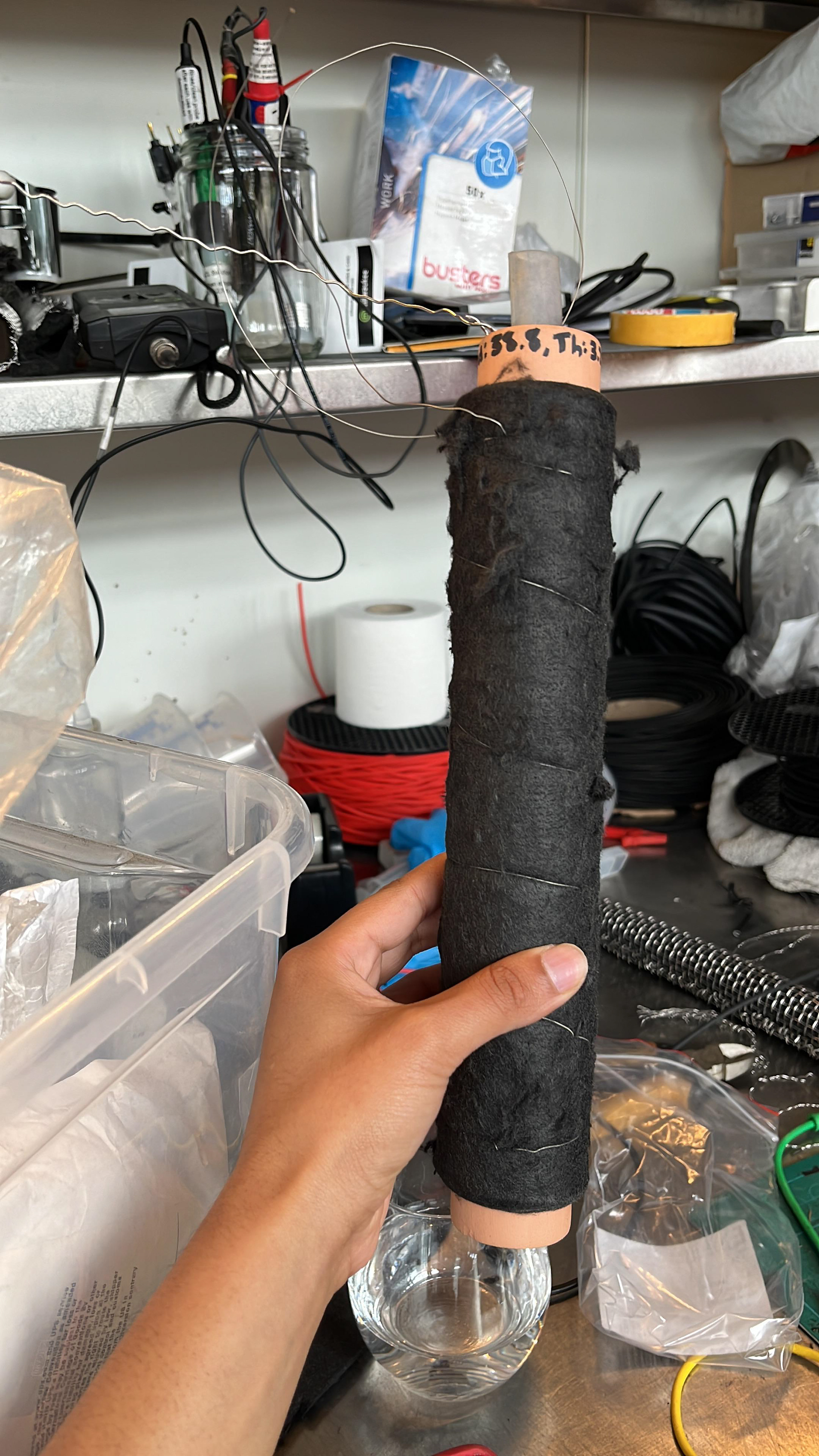
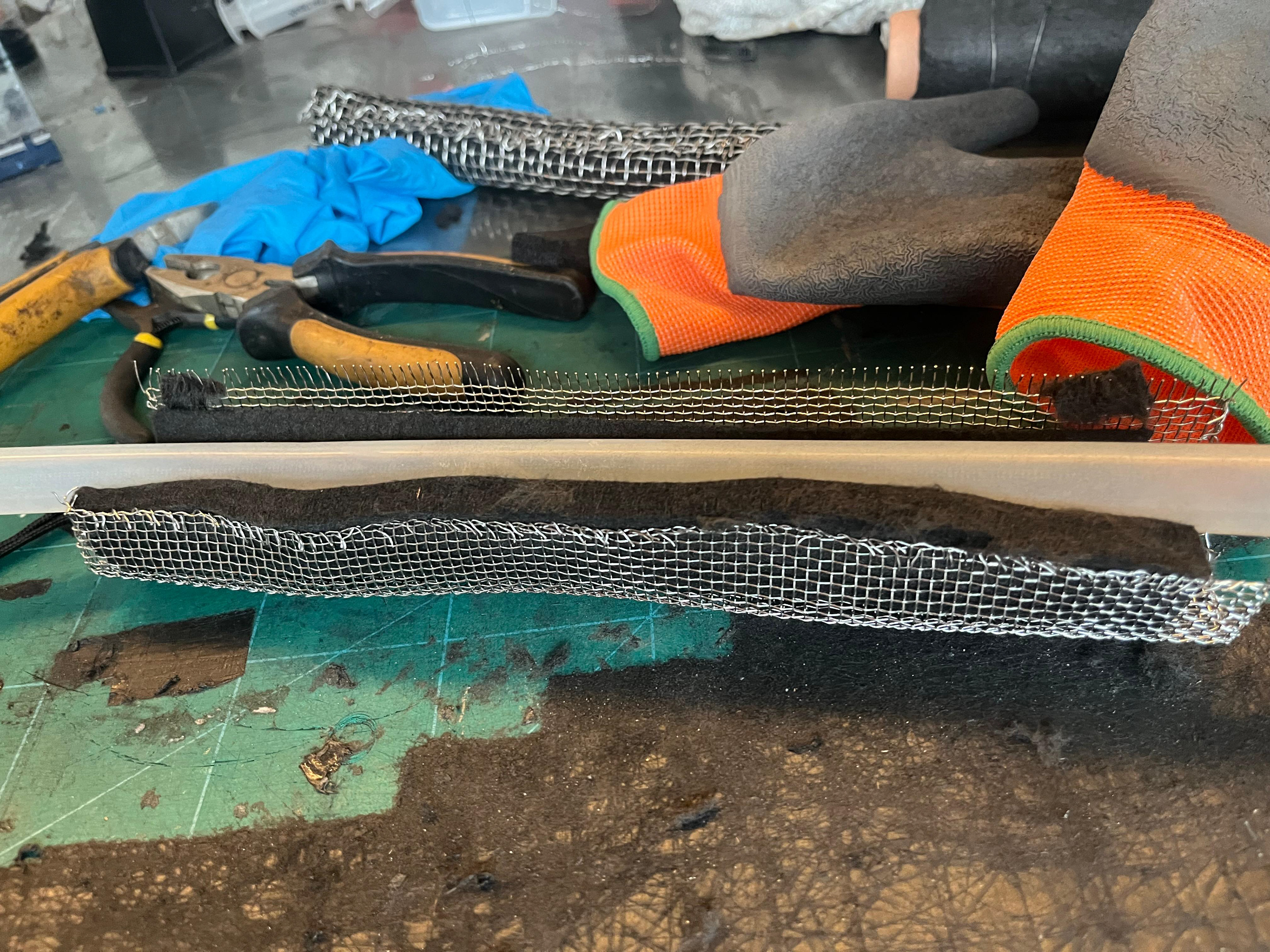
voltage data from the MFCs
This data driven approach brought a foundational ethical conundrum to the forefront: the exploitation of bacteria as "tools" for energy production versus my desire to design for bacteria, acknowledging their agency and ecological significance. This tension shaped my practice, pushing me to question how design can foster more reciprocal relationships with living systems. This experience not only deepened my technical skills but also broadened my perspective on the ethics of designing with emerging living materials.
Simultaneously, I worked on a pond prototype, designing cork materials optimized for floating, degradation patterns, and longevity. I created light animations to visualize bacterial activity and water quality, using light as a mediator between bacteria, humans, and the aquatic environment. Additionally, I researched and integrated plants that could grow on the cork, emphasizing the interdependencies between bacteria, plants, water, and the designed system. This holistic approach bridged research, design, and microbiology, fostering a deeper understanding of ecological and systemic interactions.
Below: Maintenance and care activities related to MFCs
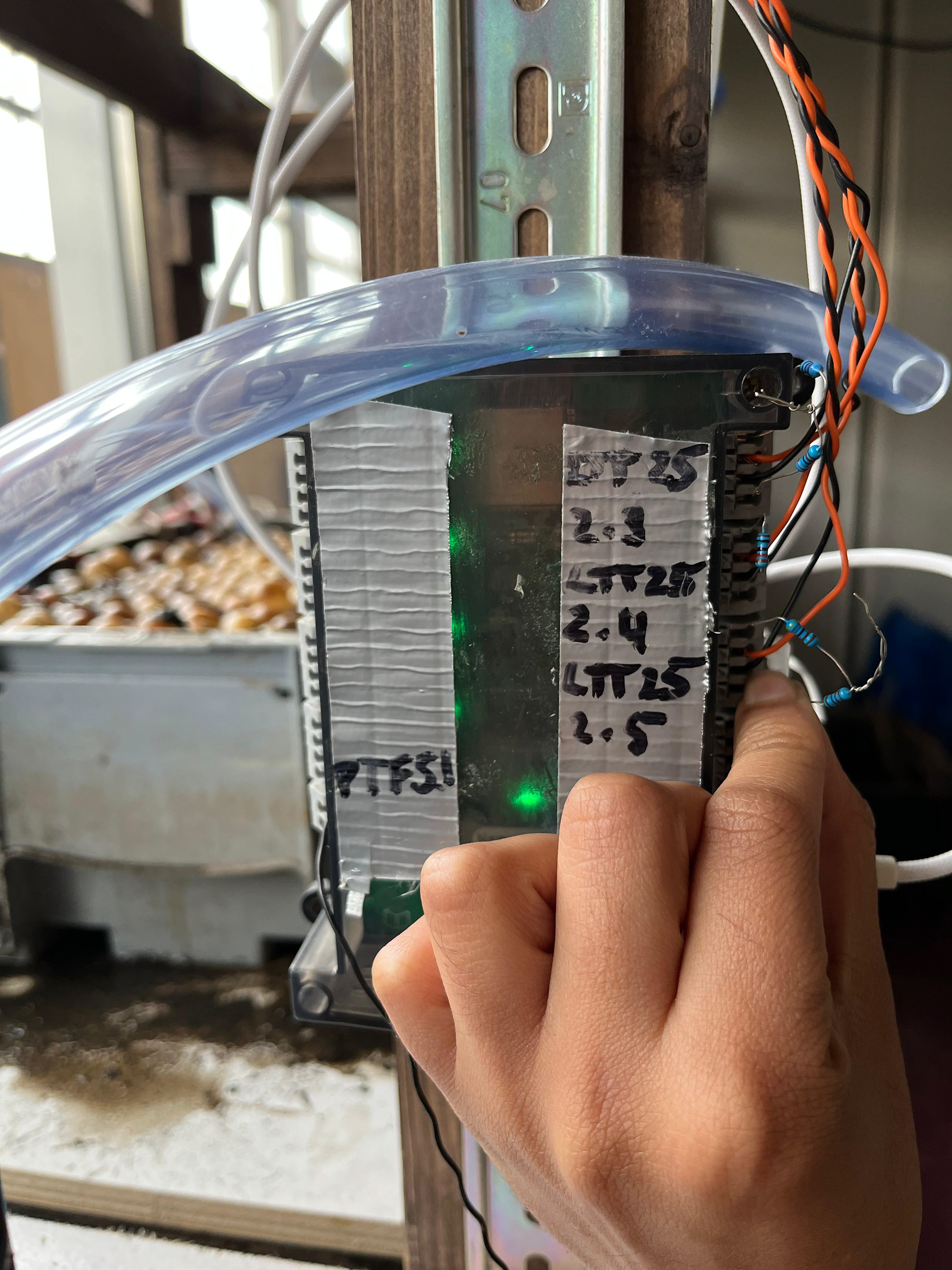
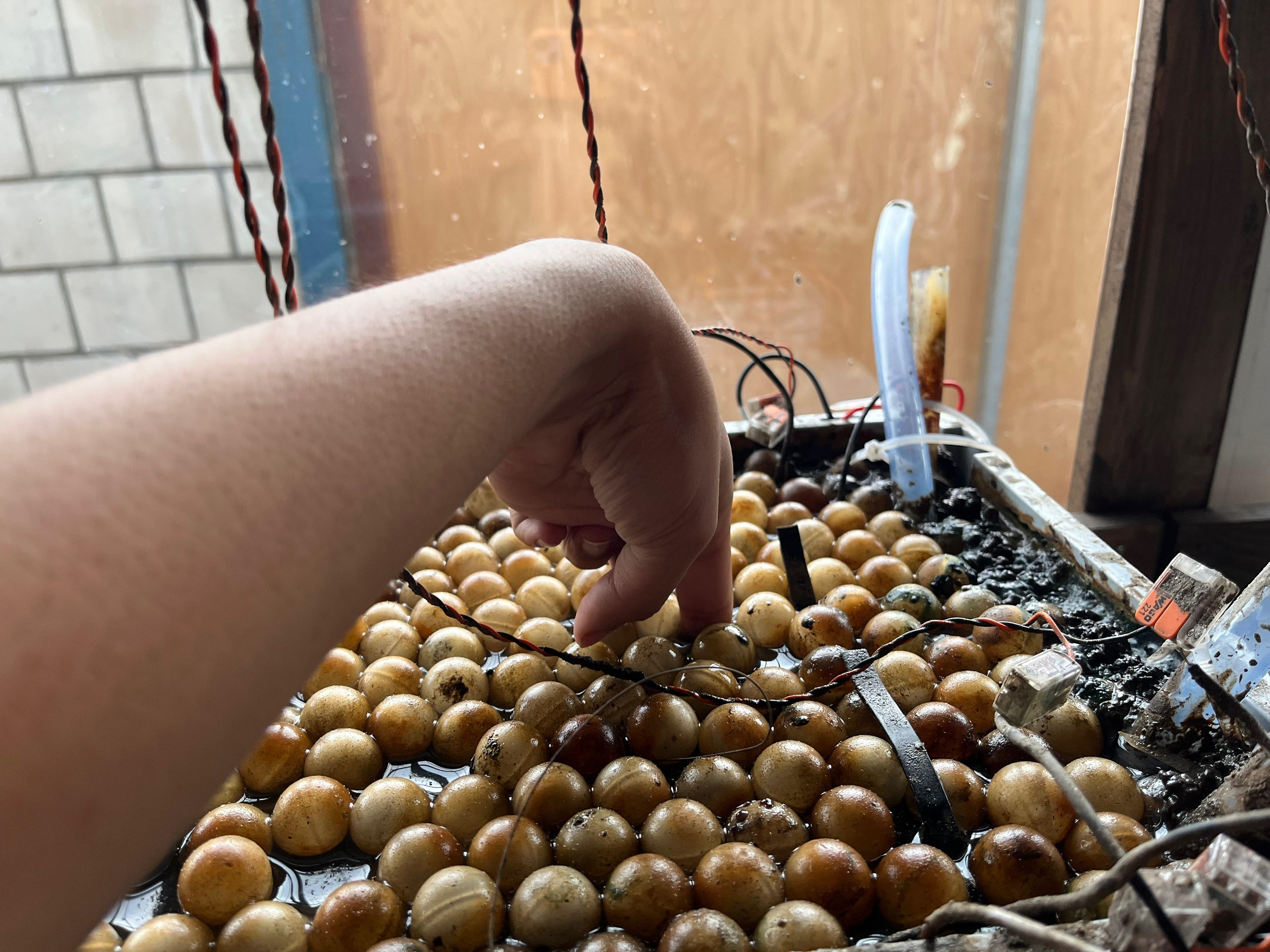
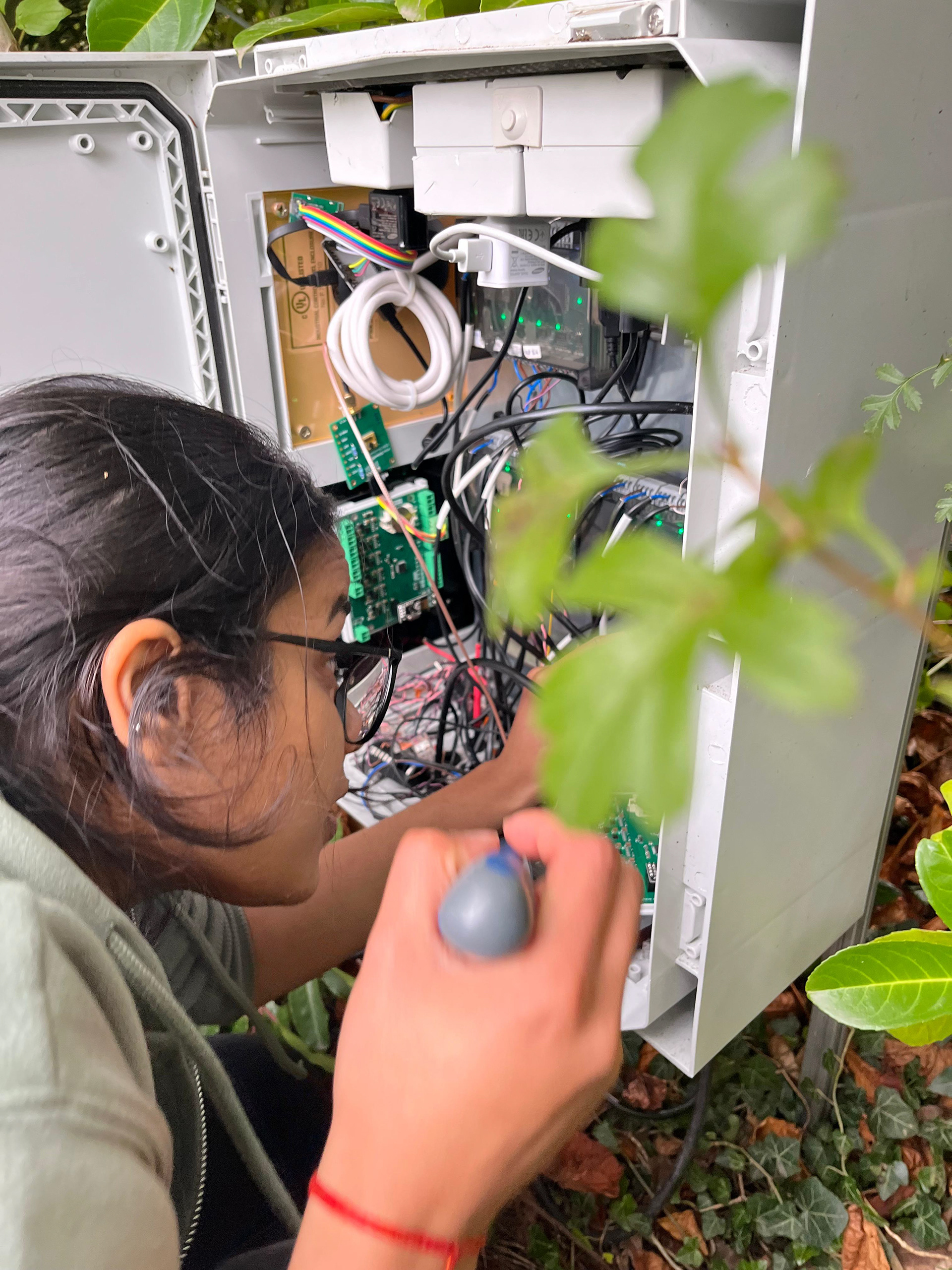
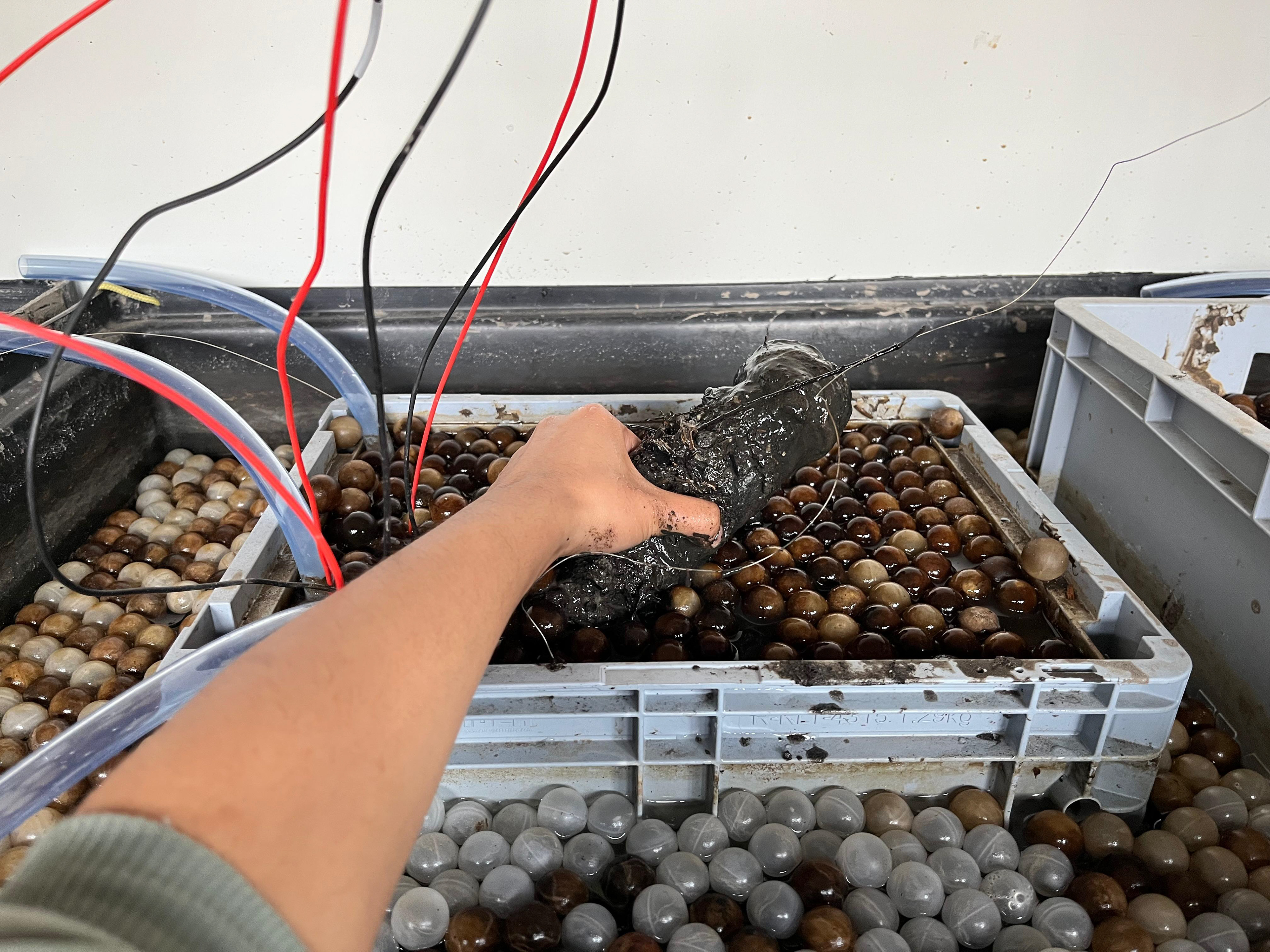
My internship at Nova Innova was a result of a period of self-reflection and recalibration. In semester B of year 22-23, I had paused a project I was working on due to a loss of motivation and confidence, leaving me at a crossroads about whether to shift academic streams or take a break from studying altogether. To regain clarity, I took a few electives and spent time reflecting on what I envisioned for my future. This led me to take a short break from the academic setup and pursue a four-month internship at Nova Innova. My goal was to assess how a biodesign project is approached in the industry to understand what my next step academically should be- what kind of projects as well as methodologies incite and inspire me. I learnt that, for me, any biodesign or MtH design project is rooted in ethical considerations and demands sustained commitment to scientific principles and a genuine understanding of ecological systems. Although, the company starts with such an approach, a challenge arises from the capitalistic hegemony that compels startups to continually alter their vision to meet demands of investors. This makes them pursue short term goals and investor visions over long-term purpose-driven objectives. The constant pivot in strategy was detrimental to both more than human philosophy and my goal as a design student. This experience and change in perspective has significantly furthered my identity and vision as a designer. This “aha moment” for me marks a realization that as a designer, I am not so concerned about the final outcome of any project, but am deeply engaged in the design/research process. Consequently, this experience resulted in me changing my core track from Research Design & Development to Constructive Design Research.
